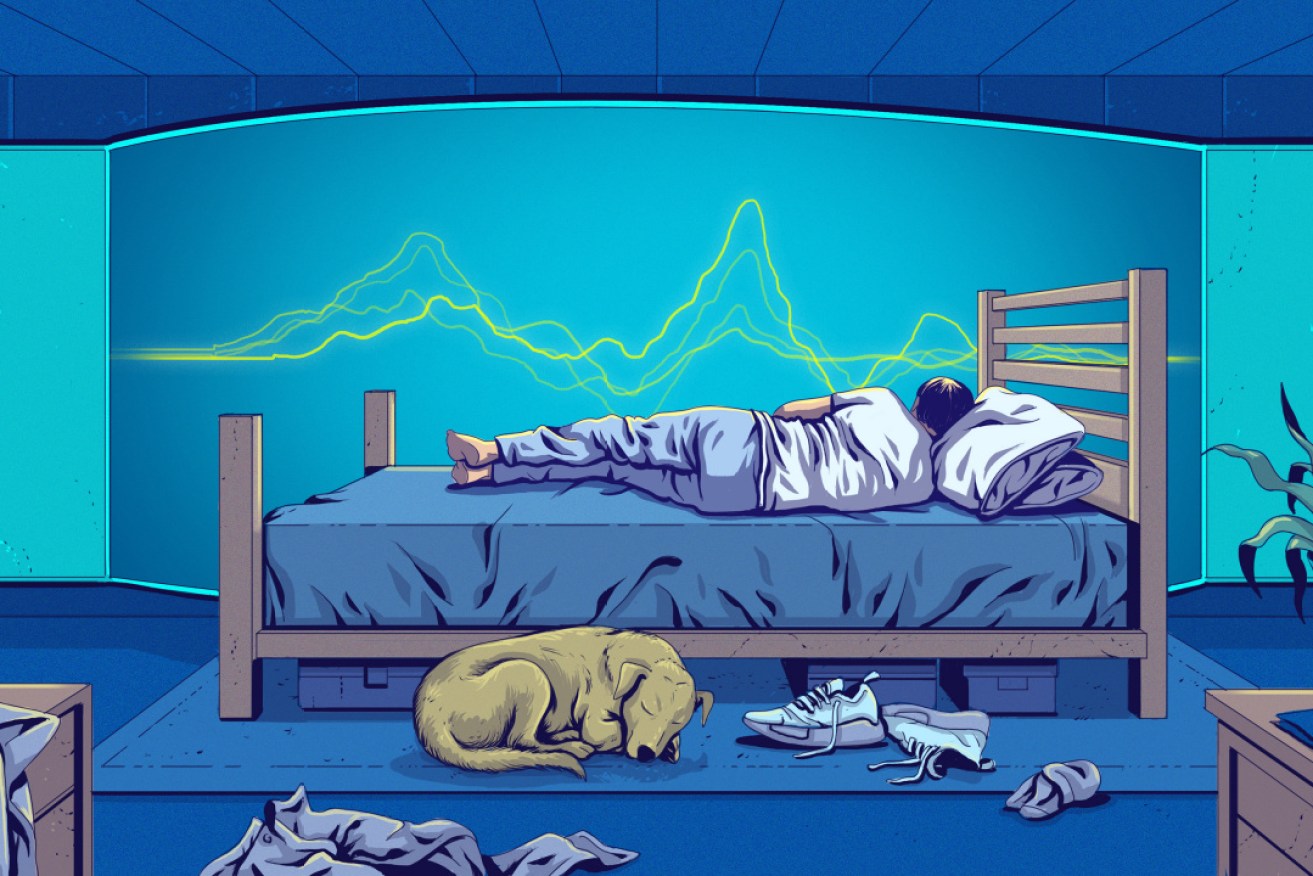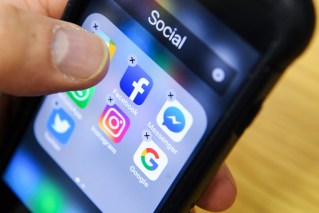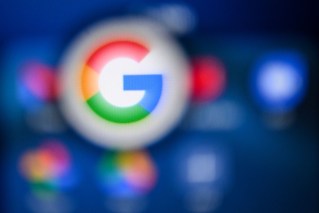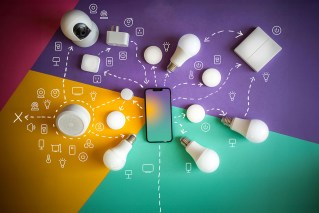The sad truth about sleep-tracking devices and apps

Fitbit and Apple claim that their sensor-laden bracelets and watches can improve our lives. Photo: Glenn Harvey
For the past two weeks, I’ve added an extra step to my bedtime routine: Strapping a computer around my wrist.
The new nightly move was prompted by a cascade of wearable gadgets from companies like Fitbit and Apple, which claim that their sensor-laden bracelets and watches can improve our lives by helping us detect health problems so that we can come up with solutions.
For many years, fitness gadgets have measured basic data, like footsteps or calories burned, to motivate us to stay active or shed pounds.
Sleep tracking is still a nascent area that tech companies are experimenting with – one that I’ve watched with interest as someone who has been sleep deprived for many years.
In the past, I’ve tried several gadgets with sleep tech, including Fitbit watches and Bose’s sleep-aid earbuds.
But I hadn’t consistently tracked my sleep habits and patterns before. Would it really make a difference, I wondered, to have this data? Would it help me to sleep better?
I decided to test it out. I wore an Apple Watch, since it is one of the most popular health-tracking devices. I also downloaded a top-rated app called AutoSleep that uses the Apple Watch’s sensors to follow my movements and determine when I fell asleep and woke up. (The Apple Watch lacks a built-in sleep tracker.)

Photo: Brian X. Chen
But the excitement ended there.
Ultimately, the technology did not help me sleep more. It didn’t reveal anything that I didn’t already know, which is that I average about 5½ hours of slumber a night. And the data did not help me answer what I should do about my particular sleep problems. In fact, I’ve felt grumpier since I started these tests.
That mirrored the conclusions of a recent study from Rush University Medical College and Northwestern University’s Feinberg School of Medicine. Researchers there noticed patients complaining about sleep data collected by apps and devices from Nike, Apple, Fitbit and others.
In their study, the researchers warned that sleep-tracking tech could provide inaccurate data and worsen insomnia by making people obsessed with achieving perfect slumber, a condition they called orthosomnia. It was one of the latest pieces of research supporting the idea that health apps don’t necessarily make people healthier.
For some practical tips on how to get more shut-eye, I sought out Raphael Vallat, a postdoctoral researcher at the Centre for Human Sleep Science at the University of California, Berkeley. His most important advice: Do not check your sleep data on a regular basis.
“If you look at your data, it can modify the perception of your sleep,” he said. “You may think, Oh gosh, I didn’t sleep well. Should I be tired? Am I in a bad mood?”
Here’s what I learned after two weeks of sleep tracking.
How sleep cycles work
To understand sleep-tracking data, I delved into how sleep works. There are three main stages: Light sleep, deep sleep and REM sleep (for rapid eye movement).
The deep sleep stage is beneficial for physical restoration, like muscle reparation and metabolism recovery, researchers said.
REM sleep, the stage in which we dream, helps in repairing our psychological and emotional networks.
On average, a person completes a sleep cycle, which includes each of the three main stages, every 90 minutes.
To get a good night’s sleep, you need to complete four to five cycles. That’s partly because the cycles are not the same throughout the night: The early cycles have more deep sleep, whereas the later ones have more REM sleep.
But our sleep-tracking tech? It generally can’t accurately measure REM sleep.
In sleep-tracking labs, the gold-standard scientific equipment typically includes sensors that are connected to someone’s face and neck to measure eye and brain activity, among other variables.
But sleep-tracking apps for wearable devices like the Apple Watch or Fitbit primarily look at movement and heart rate to determine when you are asleep or awake, which are generally not precise enough to measure the different sleep stages, Vallat said. Without a good look at REM sleep, those apps may give an incomplete picture of sleep quality.
Here is where the AutoSleep app gets credit: It estimates sleep duration and deep sleep using the motion and heart rate sensors, but it does not attempt to guess REM sleep. David Walsh, the computer scientist who developed AutoSleep, said he knew the movement and heart rate sensors would not accurately estimate the REM stage, so he didn’t bother.
Another unknown for sleep trackers are the algorithms that are being used to measure people’s sleep, Vallat said. In contrast, the algorithms used by university sleep labs have been publicly shared for decades.
Some scientists said that consumer-grade sleep trackers should not be dismissed as inaccurate. Michael Grandner, director of the University of Arizona’s sleep research program, who has consulted for Fitbit, said wrist-worn sleep trackers have a long history of use in scientific research, and some devices can be very accurate at measuring sleep stages. He added that the devices enable some sleep tracking to be done in the real world, not a lab.
What to do?
OK, but what happens once you collect your sleep data from a tracker or an app? There is no real answer.
My sleep-tracking statistics said I needed more sleep. (Duh.) Buried deep inside the data was some general information about sleep, but the app stopped short of offering advice on how to solve my personal sleep problems.
Dr Ethan Weiss, a cardiologist at the University of California, San Francisco, has been wearing a ring on his finger called Oura Ring, which includes a sleep tracker, for nearly a year. The ring measures motion and heart rate to present granular data about the different sleep stages. He said that while the device most likely had a rough sense of when he was sleeping and awake, he didn’t know whether the information about sleep stages was accurate – let alone what to do with it.
“There’s no program – it’s just information,” Weiss said. “The question is can you do anything on your own to optimise it? Or is the information just worthless or is it making things worse? Sometimes being aware of it just makes you even more anxious.”
Vallat shared similar concerns. One big problem, he said, was that many of these tracking apps send daily notifications with users’ sleep statistics. He suggested that people experimenting with sleep trackers look at weekly trends, not daily summaries.
“It’s a vicious cycle, because if you immediately feel you didn’t sleep enough, it will impact your mood,” he said.
Fitbit said in a statement that it took accuracy very seriously and that its team continuously studies and tests the accuracy of its products. Apple did not immediately have a comment.
Vallat told me that if I really wanted to get better sleep, I should simply try to sleep and wake up at the same time every day – that would help my brain learn how to build a structure for optimal sleep.
He also advised making the bedroom a cool environment (about 68 degrees) and as dark as possible; avoiding alcohol in the evening; not checking email or social media right before bed; and asking myself each morning when I woke up: “Do I feel refreshed?”
That all sounded reasonable – and there’s no app needed for any of that.








